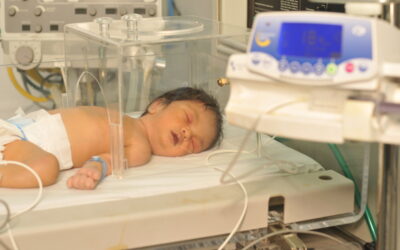Introduction Welcome to ONP Hospital, where the future of neonatal care unfolds within our state-of-the-artNeonatal Intensive Care Unit (NICU). Our commitment to delivering the highest standard of carefor our tiniest patients is evident in the cutting-edge technology,...
Introduction
Knee replacement surgery, also known as knee arthroplasty, has provided countless individuals with improved mobility and reduced pain. However, in some cases, a knee replacement may need to be revised or redone due to various reasons. In this blog, we will delve into the details of knee replacement revision surgery, including when it’s needed, the reasons behind it, the procedure itself, recovery, and potential outcomes.
Understanding Knee Replacement Revision Surgery:
When is Knee Replacement Revision Surgery Needed?
Knee replacement revision surgery becomes necessary when a previously implanted artificial knee joint needs to be replaced or repaired. This is typically due to various factors, such as:
Implant Wear and Tear: Over time, the materials in the artificial joint may wear down, leading to joint instability, pain, and decreased function.
Loosening of Components: The components of the artificial joint can become loose or detached from the bone, causing pain and reduced joint function.
Infection: Infections can develop around the implant, leading to inflammation, pain, and potential damage to the surrounding tissues.
Implant Fracture: Rarely, the components of the artificial joint may fracture or break, requiring revision surgery.
Joint Instability: If the artificial joint doesn’t provide adequate stability or range of motion, revision surgery may be considered.
Unresolved Pain: Some individuals may continue to experience persistent pain even after a successful initial knee replacement, necessitating further evaluation and potential revision.
The Revision Surgery Procedure:
Knee replacement revision surgery is more complex than the initial knee replacement due to the presence of existing implants and potential bone loss. The procedure involves removing the old components of the artificial joint and replacing them with new ones. This may involve using larger or more specialized implants to address the bone loss and structural changes that may have occurred since the initial surgery.
The surgeon carefully evaluates the condition of the bone, soft tissues, and surrounding structures to determine the best approach for the revision surgery. The procedure may also involve addressing any infections present and optimizing bone health.
Recovery and Rehabilitation: :
Recovery from knee replacement revision surgery is often longer and more involved than recovery from the initial knee replacement. Rehabilitation plays a critical role in restoring function and mobility. Physical therapy, exercises, and gradual weight-bearing are integral components of the recovery process. Patients are closely monitored to ensure that the healing process is proceeding as expected.
Potential Outcomes:
The success of knee replacement revision surgery depends on various factors, including the extent of bone loss, the overall health of the patient, and the skill of the surgical team. While most patients experience significant improvement in pain and function, it’s essential to have realistic expectations, as complete restoration of the knee’s original state may not always be possible.
Conclusion :
Knee replacement revision surgery is a complex procedure designed to address issues with previously implanted artificial knee joints. While it is a more intricate surgery compared to the initial knee replacement, it offers the potential for improved pain relief and function. If you’re considering knee replacement surgery or have had a previous knee replacement that requires attention, consulting with a qualified orthopedic surgeon is crucial. They can provide personalized guidance, assess your unique situation, and recommend the most suitable treatment plan to help you regain your mobility and quality of life.



